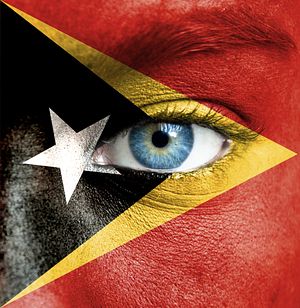To allegedly protect the rights of media practitioners, the government of East Timor is proposing a media law that is now being deliberated in the parliament. But journalists and human rights groups have thumbed down the bill, which they believe would institutionalize excessive regulation of the media sector.
The draft legislation was approved by the Council of Ministers last August but its content was not made public for six months.
The Council of Ministers claimed that the intent of the bill is to guarantee freedom of the press but at the same time it also seeks to make the press more responsible: “Its purpose is primarily to regulate the activity of professionals adequately prepared and ethically responsible, so that they can inform the public objectively and impartially and encourage active and enlightened citizenship by the population, thus contributing to a democratic society.”
But several local media groups have pointed out that the proposed law contains several provisions that directly undermine free speech. For instance, they highlighted Article 7 of the measure which mandates the registration of journalists to be supervised by a Press Council.
For La’o Hamutuk, a local NGO, the creation of a press council is unnecessary: “As freedom of expression is already guaranteed by the Constitution, no Press Council is needed to regulate it. A Council of commercial media organizations and paid journalists can self-regulate their business, including with their Code of Ethics, but their processes cannot be imposed on everyone and should not involve the state, either through financial support or legal enforcement. Furthermore, no journalist should be required to join an organization in order to practice his or her Constitutional rights.”
The group also questioned the provision which would narrow the definition of journalists to those working for corporate media. It insisted that the media landscape has already changed, which means citizen journalists must be recognized too by the government. It rejected the view that journalists who deserve protection are only those “controlled by for-profit media.” It also urged the government to broaden the provision which assured the right to free expression of citizens by replacing the word “citizens” with “everyone.”
La’o Hamutuk is joined by the Journalists Association of Timor-Leste in criticizing the bill for being unconstitutional; in particular the bill allegedly violates Articles 40 and 41 of the Constitution which address the people’s rights and freedom to seek, collect, choose, analyze and disseminate information.
“What we see in these laws is gives an impression that they intend to regulate the press rather than protect the rights of East Timorese journalists,” the Journalists Association of Timor-Leste said.
This position was echoed by the International Federation of Journalists (IFJ) which already called for a review and even overhaul of the proposed legislation: “Any legislation that would limit the capacity of local and international journalists reporting on East Timor, also limits the public’s right to know and is of great concern to the IFJ. We urge the government to ensure those reservations and perspectives are taken seriously and incorporated into the draft media law.”
Responding to these criticisms, parliament leaders vowed to accept and incorporate the views expressed by various local media and human rights groups. Many hope that the final document will truly reflect the original aim of the measure which is about respecting and advancing the people’s right to free speech.
Otherwise, it would be supremely ironic and tragic for East Timor to lose its independent media, after spending the past 500 years fighting repression, censorship and colonial rule.

































